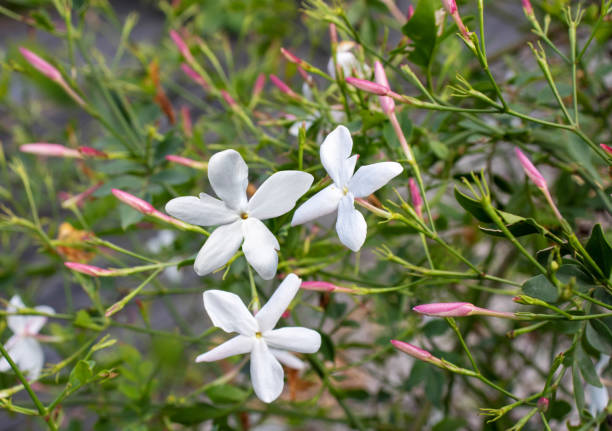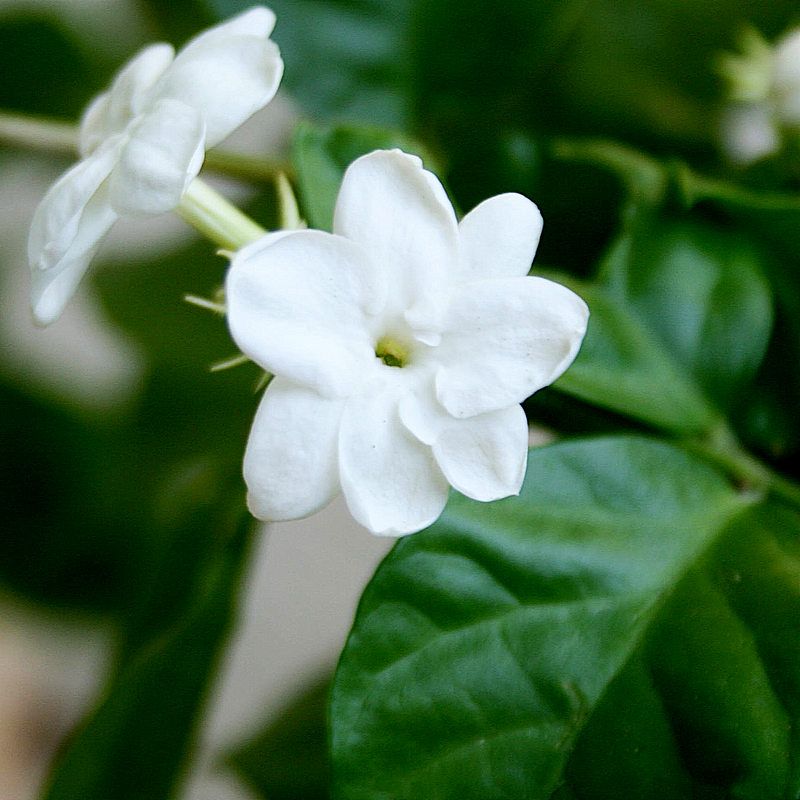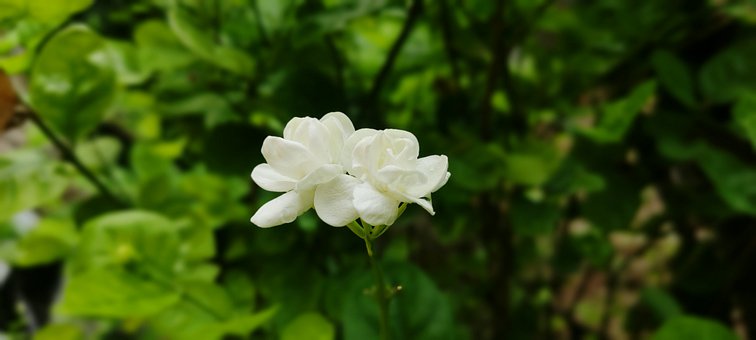Can You Eat Jasmine Flowers?
Jasminum Sambac (Arabian Jasmine) and Jasminum officinale (Common Jasmine) are flowering jasmines whose blooms are consumable. Jasmine flowers are a type of flower that is commonly used in Asian cuisine. They are often used in soups, stir-fries, and other dishes. Jasmine flowers can be eaten fresh or dried. When fresh, they should be lightly steamed and cooled before being eaten. Dried jasmine flowers can be steeped in hot water or tea to produce a flavor similar to tea taste. Jasmine flowers are safe to eat, but the flavor is extremely bitter. Rather than being used as an ingredient, they’re better off as a decorative addition.

Table of Contents
The Jasmine Tea
Even though it may sound exotic, jasmine tea is simply green or black tea that has been scented with jasmine flowers of any variety. Green tea and jasmine petals are typically used in their preparation. The tea has a delicate flavor and a mild floral aroma that refreshes your mind and body.
Jasmine’s popularity has grown in recent years due to the many health benefits it offers in addition to its lovely scent. Jasmine is a popular ingredient in a variety of foods, including tea, rice, sorbet, sorbets, and sorbets, as well as in cosmetics such as lotions, shampoos, and other skin hair-care products.
During the Ming dynasty in China, the aromatic tea made from freshly plucked jasmine flowers became a huge hit. Because of the presence of powerful antioxidants like catechin and epicatechin, which not only soothe our minds but also promote overall health, the highly aromatic tea was introduced to many countries worldwide and is now part of our traditional remedies.

Benefits of Jasmine Tea
Jasmine has been used medicinally for thousands of years and is still used today. Here are the health benefits that Jasmine has to offer:
Promotes Cardiovascular Health
As an antioxidant powerhouse, Jasmine is highly beneficial for promoting heart functions and lowering the risk of heart ailments. The presence of anti-coagulant and anti-fibrinolytic properties reduces bad cholesterol (low-density lipoproteins). It prevents clot formation in the arteries, leading to abnormal heart rhythm, heart attack, or conditions such as atherosclerosis.
Manages Diabetes
The hypoglycemic property of the jasmine flower plays an important role in lowering the body’s blood sugar level. Because of bioactive catechins in jasmine tea, the production of insulin from pancreatic -cells becomes active. Regular consumption of jasmine tea or in dishes reduces the breakdown of starch into glucose, lowering fasting blood sugar and insulin levels.
Improves Digestion
The antioxidant content of the jasmine flower aids digestion by interacting with gastric enzymes, relieving flatulence, diarrhea, abdominal pain, dyspepsia, and irritable bowel syndrome. It also promotes the growth of beneficial bacteria in the gut and has removed harmful bacteria and AMA toxins from the body.
Weight-Loss Miracle
People trying to lose weight consider jasmine flowers to be a blessing. The presence of EGCG in the leaves, which stands for epigallocatechin and gallic acid, prevents weight gain by speeding up your metabolism. It cleanses harmful toxins and aids in the faster burning of excess fat.
Enhances Cognitive Function
Jasmine is an ancient and traditional remedy for improving brain function. This scented flower’s potent antioxidants and polyphenols improve brain activity and aid in the secretion of mood-enhancing neurotransmitters such as serotonin and dopamine. It also enhances an individual’s memory capacity, focus, concentration, calmness, and alertness. As a result, it can be considered a brain booster and is extremely beneficial in treating psychotic conditions such as depression and insomnia, as well as ailments such as Alzheimer’s and Parkinson’s disease.

Jasmine Tea Preparation
When making jasmine tea, you can use green, unfermented tea, black, oolong, or white tea leaves, as well as new growth buds and leaves.
Freshly picked jasmine flower petals can make homemade jasmine tea, but dried tea or tea bags are more convenient and safer options. Buying from a reputable tea company rather than growing your own Jasmine is preferable because some varieties are toxic. Hand-rolled tea with jasmine blooms is used to make Jasmine Pearl Tea.
Follow these steps to make the best cup of jasmine tea. If you want to make the best cup of jasmine tea, follow these steps.:
- Boil a pot of water. (filtered water is ideal). Temperatures of 175° Fahrenheit (79.4 ° Celsius) should be used for electric kettles.
- Add the heated water to your teapot and steep for a few minutes.
- Steep for three minutes with a lid on.
- Pour loose tea or teabag contents into a mug of your choice. Enjoy!
To make cold-brew iced tea, place the tea leaves in a pitcher of water and let them steep for six to twelve hours at room temperature. Pour over ice or strain through a fine-mesh strainer and place in the refrigerator to chill. Some people prefer a little sugar, honey, or milk with jasmine tea, while others prefer it.
Does Jasmine Tea Have Any Caffeine in It?
The caffeine content of jasmine tea is the same as that of the base tea from which it is made. Caffeine can be found in green and black teas in their natural forms. Green tea contains 9 to 63 milligrams of caffeine per 8-ounce serving, while black tea contains 42 to 79 milligrams per 8-ounce serving. Caffeine is present in approximately 100 milligrams per cup of coffee.
You may also come across decaffeinated versions of jasmine tea, which have been decaffeinated during the processing stage of the tea.
Cautions on Drinking Jasmine Tea
The USFDA has determined that Jasmine is generally recognized as safe. According to the FDA, pregnant women should seek medical advice before consuming jasmine tea. Any caffeinated beverage, especially if consumed in large quantities, may cause adverse reactions in some people. Headaches, jitters, shakiness, and difficulty sleeping may be caused by consuming too much caffeine, which can be found in tea and other beverages.
In some epidemiological studies, higher caffeine intake has been linked to an increased risk of miscarriage and low birth weight, which is why the American College of Obstetricians and Gynecologists recommends pregnant women limit their daily caffeine intake to less than 200 mg.
